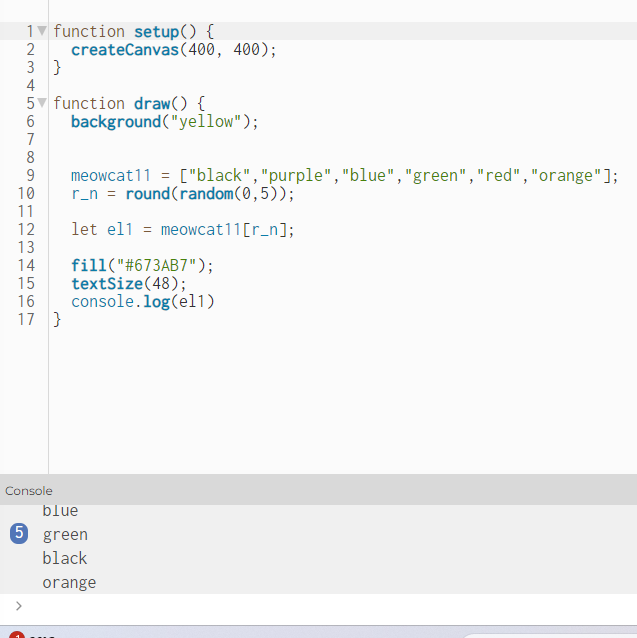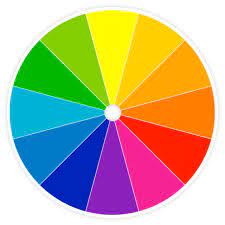This app helps you make tough decisions about colours you want. Do you want Pink or Blue? Would yellow look fine on this? If you are facing these problems in life just download this app! It lists random colors so that you can choose the perfect color.
This app is coded on P5.js using the language 'Java script'. It uses the concepts of 'arrays', 'variables' and 'user output'. When you click run, It will list names of many colors and then you have to stop the program and the color that appears would be the chosen one. It provides a variety of 14 colours for you.
- Array- Our array 'meowcat11' consists of 14 colors- "black","purple","blue","green","red","orange"," pink", "lightgreen", "cyan", "beige", "white", "brown", "maroon" and " yellow". If you want to add more colors, please contact us on jagritkumarkaushik6370@spsgurugram.com.
- Variables
- User output- As soon as you press the start button, the console will display a list of colors continuously. As soon as you are satisfied, press the stop button and the color would be the last on the list.
- Code

Instructions to use:
- Click on start.
- A list of colours will be displayed on the console continously.
- Stop the list after sometime, the final colour is your choice.
The site credits are to as follows:
- The Cosmic Warriors:- Jagrit Kumar Kaushik, Nandini Mahajan, Divija Badwal, Amitabh Mishra
- p5.js
- Google
- Makershala

